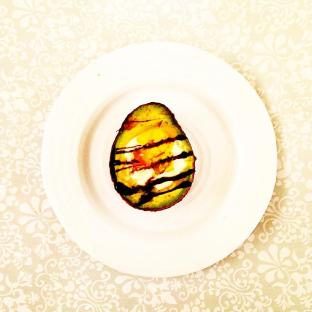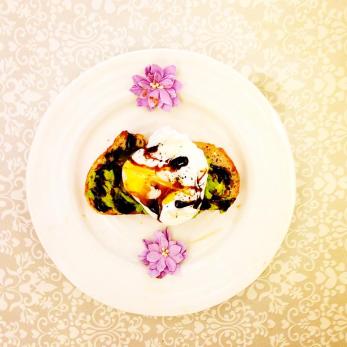
I think I’m having a (nearly) quarter-life crisis. The amount of my friends who seem to be having similar weekly existential meltdowns is astounding. Everyone I know seems to be overwhelmed in every aspect of their lives and its’ lead me to the conclusion that being in your early 20s is really damn hard. I mean, its great being young, having your whole life ahead of your and generally being hedonistic. But at the same time it’s pretty scary and confusing.
Think about it, almost nothing in our lives is certain. Most of us have CVs inundated with 6-week unpaid internships in fields that bear no relevance to each other, reflecting that we have no clue what or who we want to be. We’re either still being threatened with a potential grounding for neglecting to tidy our rooms because we live at home with our parents or we’re jumping each year into the next grotty houseshare that eats up our pay cheques and never really feels like home because the landlord won’t even let us use bluetack to stick up the remaining bits of paisley material we kept from that time we went to India and were actually excited about the future. On top of that, all the uncertainty in our careers and location makes maintaining a serious relationship nigh on impossible. Maybe it’s just me but any naive dreams of “finding the one” have been replaced with more realistic goals of finding someone who doesn’t annoy the hell out of me so I don’t have to spend Sundays alone.
I think part of the problem is that being in your 20s is advertised to us as a time of opportunity and adventure, where you can focus on personal development and do what you want. But panicking about how to pay next months rent while you’re waiting to hear back from that job interview where you accidentally gave the interviewer a hug (yes that happened) and watching all your friends get promotions doesn’t really scream adventure. Psychologist Barry Schwartz attributes the quarter-life crisis to “a paradox of choice”. That is, we reach an age where we are presented with many more options than we can handle (from careers, to residence, to life partners), this array of choice becomes so overwhelming until we reach a point when the enthusiasm for “being able to do whatever we want” is replaced with anxiety and self-doubt.
My lovely friend Tasha (whose status showed me just how many people are feeling the same way and inspired me to write this post), summed it up perfectly:
“Recently I’ve been battling a lot of negative thoughts about where I am in my life and what the hell I’m even doing. It wasn’t until speaking to a few other people my age that I realised this is a common theme around 20-something year olds. The fear that you only have yourself to blame for where you end up in life, what your purpose is, what actually even makes you happy. University installs in us that we have to make a career decision at 18 years old and then we are just let loose into the big wide world to make it work. I’ve felt extremely lost over the past few months, not sure what exactly I SHOULD be doing in my life and feeling extremely unmotivated.” – Natasha Bernard
So if everyone is feeling this way, what are we going to do about it? Fake it till we make it and stumble on through until we’re older, wiser and more stable? Or do we waste the seemingly best years of our lives by piling on the pressure until we achieve the security we all desperately seek?
As lame as it sounds I think the key to getting through is to turn to each other. The clearest link to happiness and self-confidence is to feel connected to other people. Although the constant Facebook holiday pictures and Linkedin pleas to “congratulate that random dude you met at a house party on his new job” suggest otherwise, chances are everyone around you is feeling the same. When life is so confusing and you can’t do anything about it, knowing your friends will be there to laugh at your first world problems is kind of the only thing you can guarantee. And hey, if being in your 20s is so damn exciting and fun then we are entitled to make the most of it by getting pissed and complaining together, right?
This recipe is completely unrelated to everything I’ve just written and therefore I have no linking sentence but I wanted to share it coz they tasted really good and sometimes you need sugar to get you through. It’s been a long week, sue me.
 No-bake Blackberry and lemon tarts:
No-bake Blackberry and lemon tarts:
Ingredients (makes 12)
1 handful blackberries
2 tablespoons honey
1 tin coconut milk
2 lemons (use the juice and zest)
2 tablespoons icing sugar
1 packet oreos
2 tablespoons coconut oil
12 cupcake cases
- Smash the oreos into crumbs using a rolling pin (don’t use your hands or they will go black, I speak from experience)
- Mix oreos with coconut oil until they resemble a buttery biscuit base
- Place the cupcake cases on a cupcake tray and push the base mixture evenly into the bottom of the case.
- Leave in the fridge for 10-15mins
- Meanwhile, mix the creamy part of the coconut milk with icing sugar, 1 tablespoon of honey and squeeze in the juice and zest of both lemons.
- Separately, mush up the blackberries using a fork and add two tablespoons of honey.
- When the base is set, pour the coconut cream mixture on top of the base and set in the freezer for 10mins.
- When the cream is more solid, spoon the blackberry mixture on top and swirl with a fork.
- Leave in the freezer and take out 5 mins before serving.











 I found out something really cool and interesting that has really helped me to change the way I think about food…
I found out something really cool and interesting that has really helped me to change the way I think about food…



